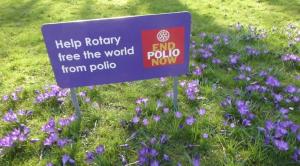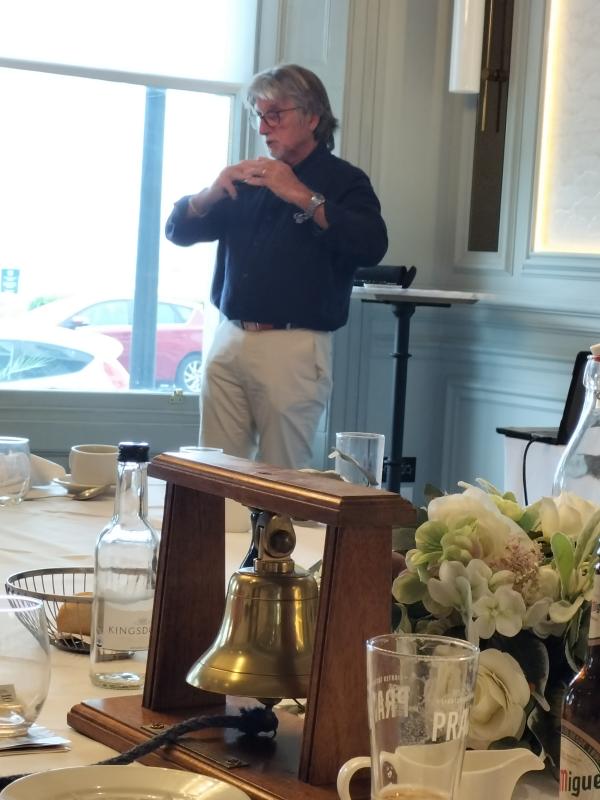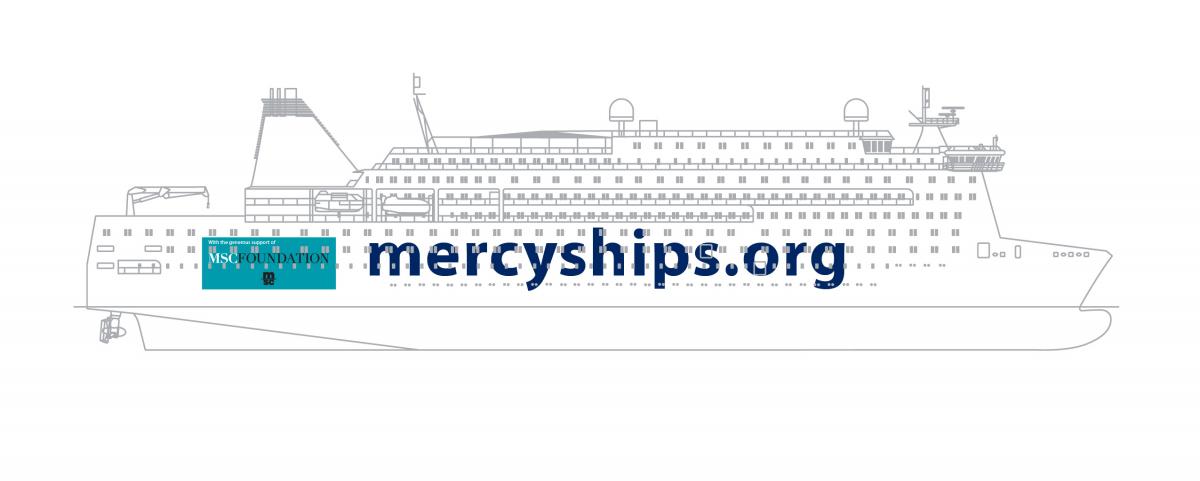Mercy Ships
Mon, Aug 18th 2025 at 2:03 pm- Fri, Oct 31st 2025 - 4:03 pm
Don Cockrill gives a presentation on the work of 'Mercy Ships' in providing hospital facilities for people in Sub Saharan Africa who have little or no healthcare. The ship shown is an outline of the one under construction.
Mercy Ships
At a recent meeting Don Cockrill, a Direct Rotarian and an Ambassador for Mercy Ships, gave an informative and enthusiastic presentation to club members. In the UK we tend to take the NHS for granted but globally millions of people have no access to healthcare.
Mercy Ships sail to places, currently in Sub-Saharan Africa, to provide free healthcare where it is lacking. In partnership with nations, it helps to transform lives by providing general and specialist surgery, dental care, medical training and infrastructure development in those communities it works with. Training and mentoring for local medics, renovating or building hospitals and clinics, providing medical tools and equipment and advising governments on healthcare policy, are all related aspects of healthcare provision from the ‘Mercy Ships’.
It is a Christian charity aiming to bring hope and healing to the forgotten poor whose problems are largely the result of poverty. Mercy Ships was founded in 1979 by Don and Degan Stevens when they were based in Geneva. Don realised the benefit of having medical care on board ship and a close banker friend of his and his rich colleagues managed to buy an old Italian passenger liner which became the first Mercy Ship called the Anastasia and was in use from 1978 until 2007. It was also realised that nearly half the world’s population live within 100 miles of the sea.
Two other early ships were the ‘Good Samaritan’ from 1984 until 2001 and the ‘Caribbean Mercy’ from 1994 until 2006. These ships operated in the Caribbean and Central South America. The current ships are ‘African Mercy’ and ‘Global Mercy’ which are working with countries such as Senegal, Cameroon, Guinea and Madagascar in Sub-Saharan Africa. Because of the demand for healthcare a third ship is planned for completion in 2028. Half the cost of £2 million is being provided by the MSC (Mediterranean Shipping Company) which is a great help.
All healthcare is provided free of charge to the countries and to individuals. Volunteers are central to the operation of the charity: the maritime crew, the medical staff (who make up 50% of volunteers) and all the other roles such as engineers, mechanics, cooks, cleaners, teachers and IT specialists. As volunteers are always changing and work for short periods, a great deal of detailed planning is needed. The ships provide employment to local people and so benefit the community. Each ship also has a security team of Gurkhas who do this job as part of their training.
How all this works is with the ships delivering a customised five-year partnership model with each country it supports. Once the ship arrives in port the first phase is for recruiters to screen the local area for potential patients who have medical problems that require surgery. The next phase is arranging for patients to attend the ship at a particular time when they will be triaged. It could be an eye problem such as cataracts (which some children suffer from), dental decay, which is common, or the need for orthopaedic surgery or facial maxillary surgery. Many people may have lived with a deformity such as extremely bent legs or a large facial or neck tumour which caused them to be mocked or treated as an outcast. We saw examples in the presentation.
It is not just giving treatment that is important but education and training at all levels so that local people can continue to improve healthcare in the five-year programme and beyond through training and the development of infrastructure. Volunteers are used to build or refurbish hospitals and clinics which are basic but functional and clean. The charity has built dental training centres, the latest in Dakar, Senegal. An important aspect of education is about the need for good nutrition for health; helping people to grow better crops and to eat a balanced diet.
The reason why the ships are in Sub-Saharan Africa is that 9 out of 10 people have no safe surgery. ‘Mercy Ships’ is partnering nations there to build stronger healthcare services to make an impact long after the ships depart.
‘Mercy Ships’ works with other charities such as Smile, which supports babies born with cleft palates, and Mission Aviation Fellowship based in Ashford, Kent, a charity which provides aviation, communications and learning technology services.
The charity depends on fundraising and donations. It has been helped by Rotary Global Grants. In 2020 a record Grant of $1.125 million was given to Global Mercy to fund equipment when it was a new ship, including a CT scanner. Earlier this year a Global Grant was given so that each ship could have a new eye scanner. After the meeting individual donations could be made and the club will be making a donation in future.
It was difficult not to be moved by the poverty of so many people in the world but ‘Mercy Ships’ is ensuring that some lives will be transformed. In the UK it has become common for some elderly people to have two cataracts removed within weeks to improve their eyesight. In the presentation we saw a little boy of about 8 who had lived with cataracts all his life, but treatment on a ‘Mercy Ship’ enabled him to see colour and see clearly, which delighted him and his family. What we might treat as routine, to them was a miracle.
'What We Do' Main Pages:

Contact us if your school would like to get involved with growing crocuses and helping to end Polio.
more


